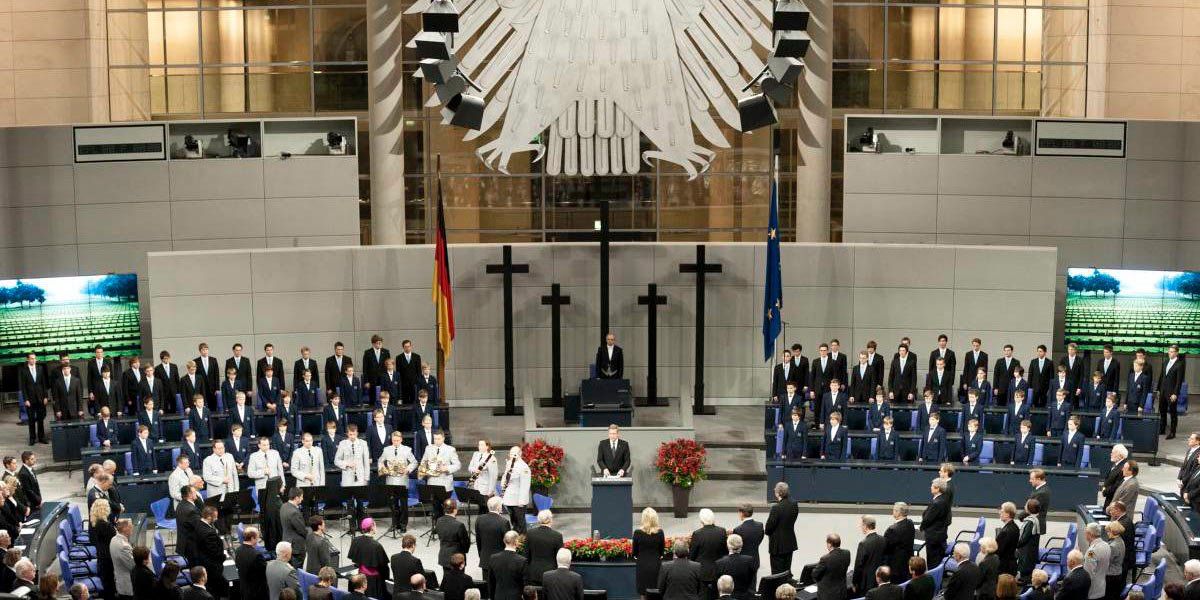
National Day of Mourning
We at the German-American Heritage Foundation would like to honor the members of the German Armed Forces who died in both of the world wars, the citizens who died in armed conflicts, and the victims of violent oppression this Sunday on Germany’s National Day of Mourning.
Sunday, November 19th is Volkstrauertag (People’s Day of Mourning). It is a public holiday that commemorates fallen soldiers as well as civilians during armed conflict and violent oppressions. This day of remembrance is always held two Sundays before the first day of Advent, as this time of the year is the end of the Liturgical Year and is typically a time to remember the dead and think about time and eternity.
However, Volkstrauertag was not always the day that it is now. From 1934 to 1945, the Nazi (National Socialist) Party changed it to Heldengedenktag (“Day of Commemoration of Heroes”) that sought more to commemorate war heroes and instead of being about remembering the dead. Upon the end of the Nazi Regime in 1945, this day was no longer widely celebrated. Then, in 1948, Volkstrauertag was observed in West Germany and the day of remembrance was moved to two weeks before Advent. The scope of the day was also broadened during this time period to include those who died from violence committed by an oppressive government.
This day is observed in Germany with an official memorial in the Bundestag that involves a speech given by the President and Chancellor as well as members of the Bundestag singing the National Anthem and “Der gute Kamerad” (The Good Comrade) which is a soldier’s song. Throughout Germany, there are also memorial services held in churches. National Day of Mourning is also classified as a “silent day”, which means that in some regions of the country, music and dance events are prohibited in order to respectfully honor the fallen.
Written by Emily Beeland